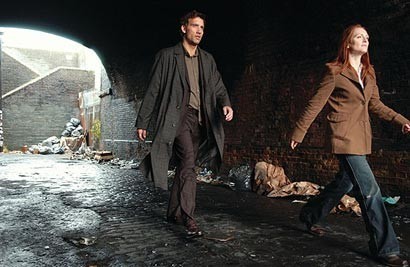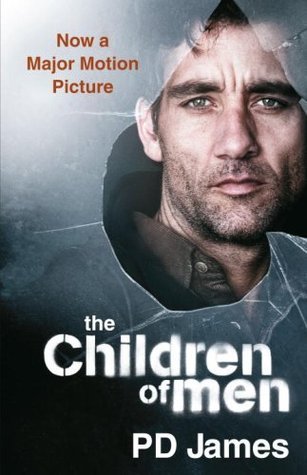Children of Men
Premiere: Year 2006
Directed by: Alfonso Cuarón
Starring: Clive Owen, Julianne Moore, Clare-Hope Ashitey and Michael Caine
Adapted from the Book: The Children of Men, by Phyllis Dorothy James (1992)
Linger a while, fleeting moment, thou art so fair!
Johann Wolfgang von Goethe
Sometimes, the place where we belong, which contributes to our expansion, is the least expected, the one we had never thought of, for which we had been preparing, unknowingly, all our lives
The film is set in the year 2027, in a dystopian reality, i. e., a potential future world characterized by all those elements which, at least from a humanistic and altruistic perspective, would be undesirable: extreme dehumanization and poverty, fascist governments and inconsequential parliamentary action, continent-wide chronic wars, etc. An apocalyptic scenery which, ironically and regretfully, could almost be paled by and considered less of a negative impact in comparison to the world we are actually living in right now, in 2024, anywhere in the world (until some years ago, the best gloomy fiction rapidly became just a nightmare, from which we awoke to ease ourselves under the comforting shelter of vigil).
Focussing on infertility as the definitive omen of civilization’s imminent doom, the story zooms in on Theo’s (Clive Owen) life, whose symbolic name encompasses the twists and turns of a character who, against his will, must play a determining and non-transferable role in Kee’s (Clare-Hope Ashitey) development, so that she can bring to an end a seemingly impossible endeavor.
Julianne Moore and Michael Caine’s remarkable and versatile performances distinctly explore additional storylines like rebellion against injustice, the imperative of human values and ideals as beacons in dark times, the de-romantization of love, depicted as a fully-life-celebrating and wholly-conscientious election of someone else without deceptive expectations, and the indestructible creative power emanating from the liberating certainty of death.
Towards the end of the movie, emotionally powerful scenes make a strong statement as perfect catalysts of the meaning of empathy and the like-never-before necessary capacity to protect the vital tiny spark that tickles amidst dire social hurricanes and that could give way to a new future world. Such images could even contribute to awakening archaic memories of that which makes us human, a memory that, as seen from our current times in 2024, would seem buried deep down in many people’s deep unconscious minds.
There was particularly one scene, towards the end, which felt to me especially moving. And urged by the psycho-chemical effects it produced on me, later I was able to think on the fact that being emotionally moved can be considered, even today, the best of thermometers to measure our level of true humanity.

Because that which moves us never elicits the insignificant, the accessory or the dispensable.
What moves us will always belong to the order of the reality of the invisible, of that which can save us.














Leave a comment